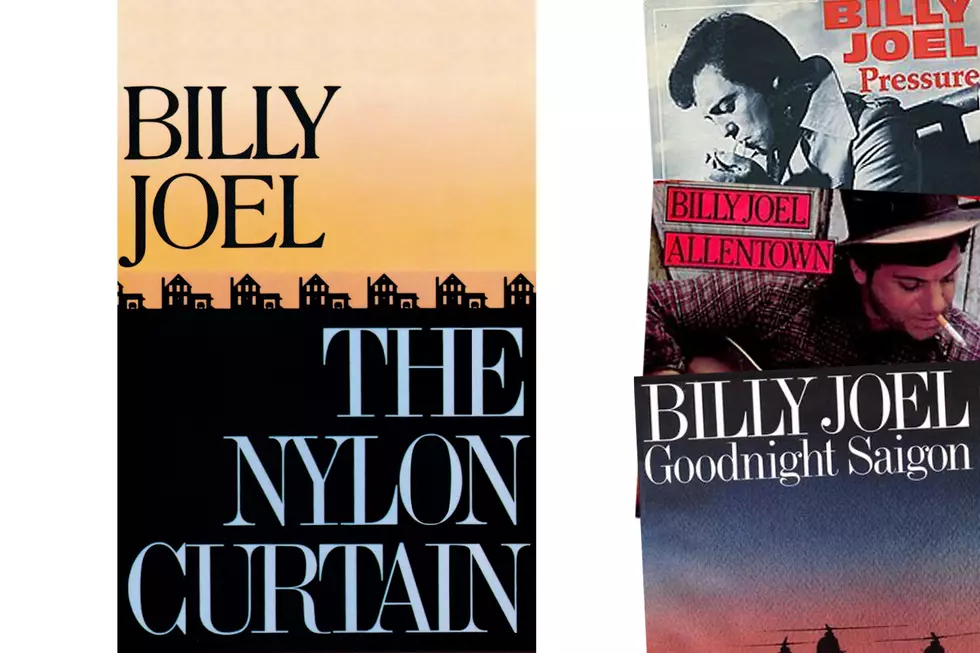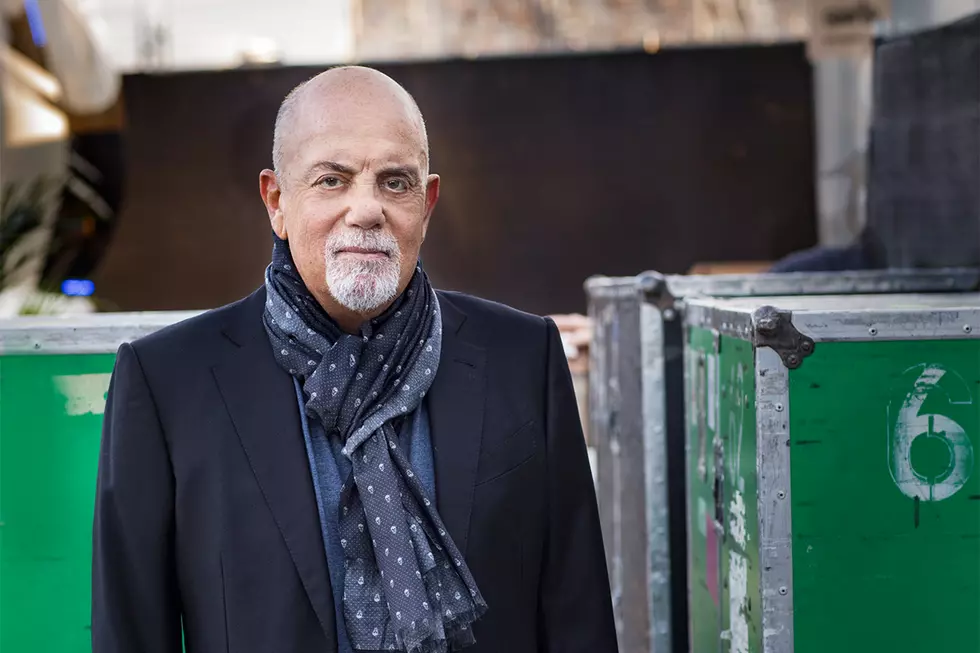
How the Beatles Inspired Billy Joel’s ‘The Nylon Curtain’
Billy Joel was on a roll as he began making his eighth album.
The singer-songwriter was riding three consecutive multiplatinum triumphs - 1977's The Stranger, 1978's 52nd Street and 1980's Glass Houses - the latter two of which hit No. 1 on the Billboard 200. The three sets had also yielded eight Top 20 hits on the Billboard Hot 100. By the time the dust settled (sort of), Joel was a worldwide superstar.
What to do next? Not more of the same.
"I definitely wanted to do something a little different," Joel told this writer a few weeks after the Sept. 23, 1982, release of The Nylon Curtain. "I was thinking about the great Beatles albums, especially Sgt. Pepper's and all the great sonic stuff they did in the studio. I had those kinds of aspirations for this."
The Nylon Curtain was, indeed, like nothing Joel had released before.
A student of music and great productions, whether it was the Beatles or Brian Wilson or Phil Spector, Joel made sure his nine-song set offered a rich soundscape that fleshed out his strong-as-ever melodies with detailed and sometimes daring nuance. Lyrically it was equally expansive, with Joel offering a state-of-the-world, and occasionally state-of-himself, treatise touching on political and social issues such as the economy ("Allentown"), the legacy of Vietnam ("Goodnight Saigon") and societal Zeitgeist ("Pressure") - all pulled as singles. It looked beyond the cocktail lounge or the Italian Restaurant down the street or the girl down the block, and out at the world at large.
Watch Billy Joel's Video for 'Allentown'
"That was right in the middle of the Reagan era, and things were changing in America," Joel told UCR earlier this year. "I was very aware of it. It was baby-boomer peaking time, the early '80s. Things did change then. I was very proud of that album. The songs seem to still resonate with audiences and with younger people as well." Back then, Joel explained, "I think people my age - the post World War II babies - are thinking the same things: Whatever happened to the horn of plenty, the limitless horizons? Where's the clean air? Where's the clean water? Where is everything? Halfway through the album, I said, 'What am I doing here? I've got a song about Allentown, a song about Vietnam ... I suppose this is my stab at the great American novel."
Joel - who divorced his first wife, Elizabeth, while The Nylon Curtain was being finished - was equally ambitious on the musical tip, too. "One day in 1982, Billy said, 'I want to make a good 'headphones album' and use exotic instrumentation and layering the way the Beatles did,'" producer Phil Ramone, who'd been working with Joel since The Stranger, wrote in his memoir, Making Records: The Scenes Behind the Music. "The time for a departure from Billy's past work seemed right. ... I saw Billy's suggestion as an opportunity to make a credible avant-garde statement."
Working at A&R and Mediasound studios in New York City, starting in late 1981, Joel and Ramone tucked into the task at hand with enthusiasm. Joel's band had changed. With the departure of mainstay Richie Cannata, it would be the first time since 1974 that Joel recorded without a saxophonist in his band. (Eddie Daniels plays the album's lone sax part on the closing track, "Where's the Orchestra?")
They employed a variety of sound effects - helicopter sounds for "Goodnight Saigon," industrial clangor for "Allentown" and airport ambience in "Scandinavian Skies." "Our palette was vast," Ramone wrote. "We broke our own mold with The Nylon Curtain. It was our form of musical expressionism, and the closest we came to approaching a concept album."
There were some happy accidents, too. The stark bark of the title during "Pressure" came after Joel impulsively hit a button in the studio deleting every other sound on the track for that short moment. And on "A Room of Our Own," stylistically a salute to the late John Lennon, drummer Liberty DeVitto accidentally began playing the beat backward, but it sounded so good that Ramone signaled from the control room to keep playing that way.
Listen to Billy Joel's 'Goodnight Saigon'
"I wanted to write, I guess, a real sonic masterpiece," Joel said in an interview for his The Complete Album Collection in 2014. "The Nylon Curtain took a long, long time to record. Rather than starting with just the basic song and adding to it, we kind of started with the song from the outside and work our way in. We didn't really know what we had until we were getting close to the final mix. There was so much recorded - different instruments, sound effects, orchestral things, percussion instruments, vocals, synthesizers ... I was experimenting [with] playing the studio as an instrument.
"It was a labor of love, but it was exhausting. I think by the end of making this album I felt like I had almost died." Funny he should say that ...
On April 15 that year, Joel was hit by a car while riding his motorcycle, sending him flying and severely injuring his right wrist and left hand. He was forced to wear a cast for several weeks, which delayed the album, but it did give him a final song, "Surprises," which was inspired by the life-flashing-before-his-eyes experience of the accident. He recorded "Where's the Orchestra?" while wearing the cast, and during the subsequent tour - which was initially booked tentatively, show-by-show, based on Joel's recuperation - he played with his left thumb taped and his right wrist wrapped with an ACE bandage.
Fans did not receive The Nylon Curtain as enthusiastically as its predecessors - it peaked at No. 7 on the Billboard 200 and went only double platinum, as compared to the multiplatinum earlier records - and Ramone recalled that executives at Columbia Records were lukewarm when they first heard a playback, failing to hear a surefire hit single among the tracks. But it was a critical triumph and was nominated for a Grammy Award for Album of the Year in 1983. The three singles have remained staples of Joel's live performances ever since. "I consider this maybe my best-recorded effort," Joel said for The Complete Albums Collection. "This is, I think, essential, the material I'm most proud of and the material I'm most proud of until [River of Dreams] in 1993."



